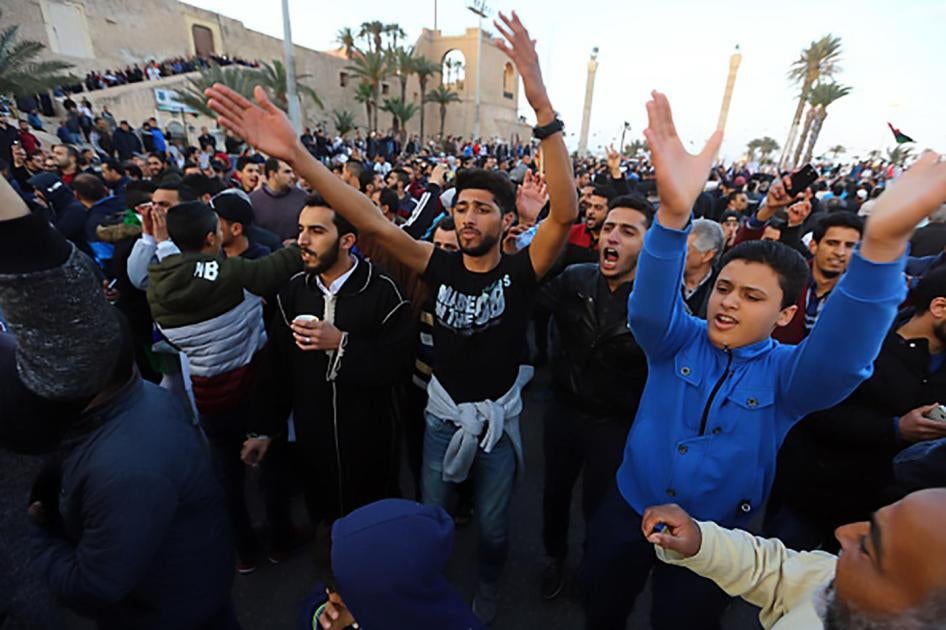(Geneva) – Armed groups and some forces affiliated with two rival Libyan governments vying for legitimacy are committing rampant abuses against Libyans and foreigners with impunity, Human Rights Watch said in its World Report 2018.
Since the eruption of pitched conflict in May 2014, armed groups unlawfully killed, disappeared, tortured, forcibly displaced, and arbitrarily detained and kidnapped people, for political, economic, or criminal motives. Hundreds of thousands of Libyans remained internally displaced, while armed groups and criminals exploited and subjected to violence thousands of migrants, mostly from sub-Saharan Africa.
“The migration crisis in the central Mediterranean shows the rest of the world that it is ignoring Libya’s human rights disaster at its own peril,” said Eric Goldstein, deputy Middle East director at Human Rights Watch. “Stabilizing the situation in Libya requires establishing some measure of accountability for the rampant abuse being committed by various actors.”
In the 643-page World Report, its 28th edition, Human Rights Watch reviews human rights practices in more than 90 countries. In his introductory essay, Executive Director Kenneth Roth writes that political leaders willing to stand up for human rights principles showed that it is possible to limit authoritarian populist agendas. When combined with mobilized publics and effective multilateral actors, these leaders demonstrated that the rise of anti-rights governments is not inevitable.
Armed conflicts since 2014 resulted in the collapse of central authority. Key institutions, most notably law enforcement and the judiciary, are dysfunctional in most parts of the country, virtually guaranteeing domestic impunity.
On May 18, forces aligned with the United Nations-backed Government of National Accord (GNA) attacked an airbase controlled by the Libyan National Army (LNA), which is affiliated with the Interim Government in eastern Libya, summarily executing 51 individuals, mostly captured fighters. On August 15, the International Criminal Court prosecutor issued an arrest warrant, its first for crimes committed since the 2011 uprising in Libya, against LNA special forces commander Mahmoud al-Werfalli, after the emergence of videos implicating him in apparent summary executions in eastern Libya. In October, the bodies of 36 men were found in the eastern town of al-Abyar, apparently executed summarily by armed groups loyal to the LNA.
Both Libya’s justice ministry and various armed groups linked with the interior and defense ministries of both governments held thousands of Libyans in long-term arbitrary detention. According to the judicial police, only 25 percent of the 6,400 held in justice ministry facilities had been sentenced; the rest were in pre-charge or pretrial detention.
At least 20,000 people from Benghazi remained forcibly displaced, mostly since 2014. LNA forces prevented them from returning to their homes, accusing whole families of “terrorism,” while subjecting them to abuses including seizing their private property. Armed groups from Misrata continued to collectively punish 35,000 residents of Tawergha by preventing them from returning to their homes, accusing them of war crimes in 2011, despite a UN-brokered agreement between the parties. The GNA announced on December 26, that displaced residents of Tawergha would be allowed to return to their town from February 1, 2018.
Militias, smugglers, and guards in detention centers subjected thousands of migrants and asylum seekers who continued to flock to Libya, most hoping to reach Europe by sea, to beatings, sexual violence, and forced labor. During interceptions at sea, Libyan coast guard forces ill-treated migrants before sending them to detention centers where conditions were inhumane.








